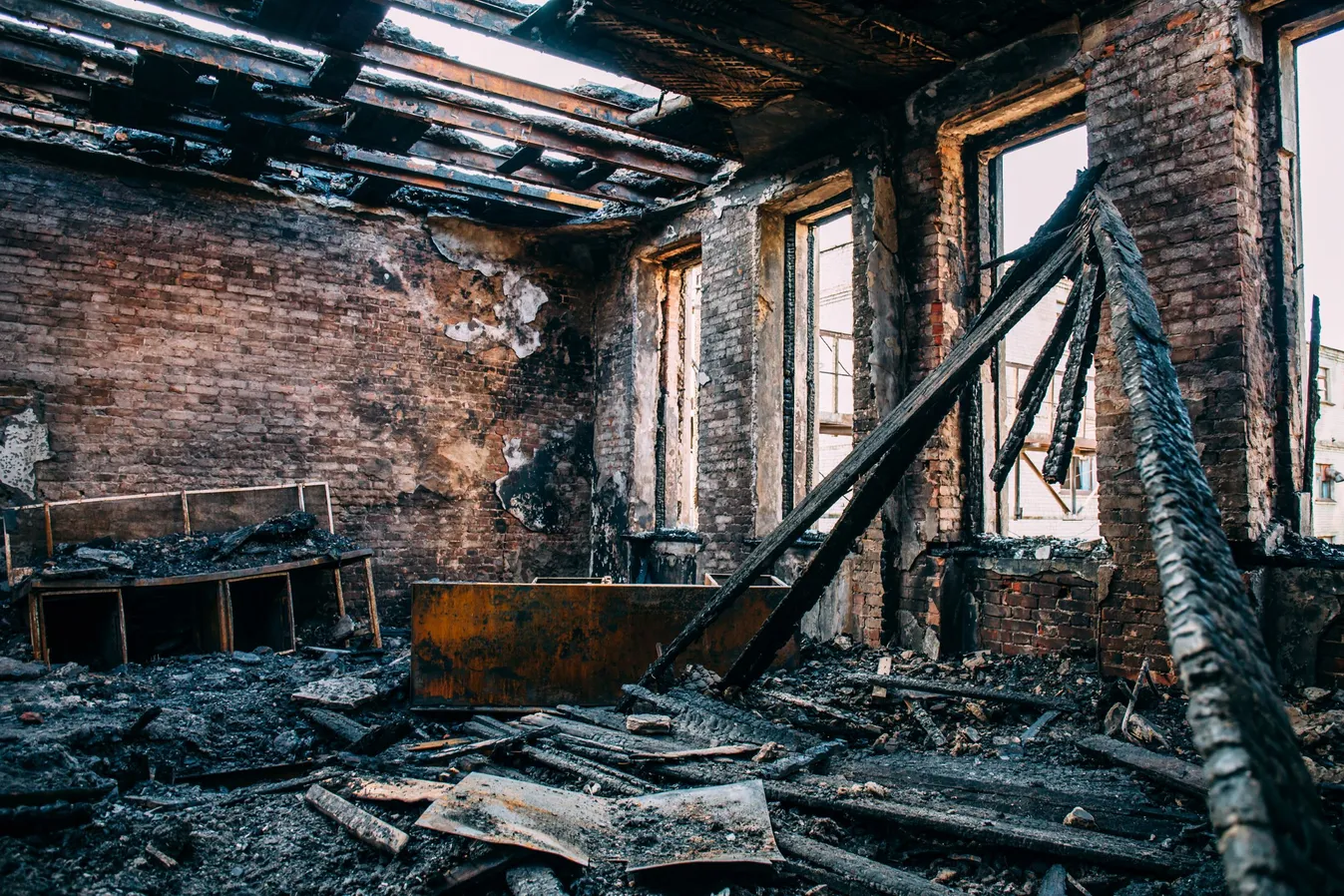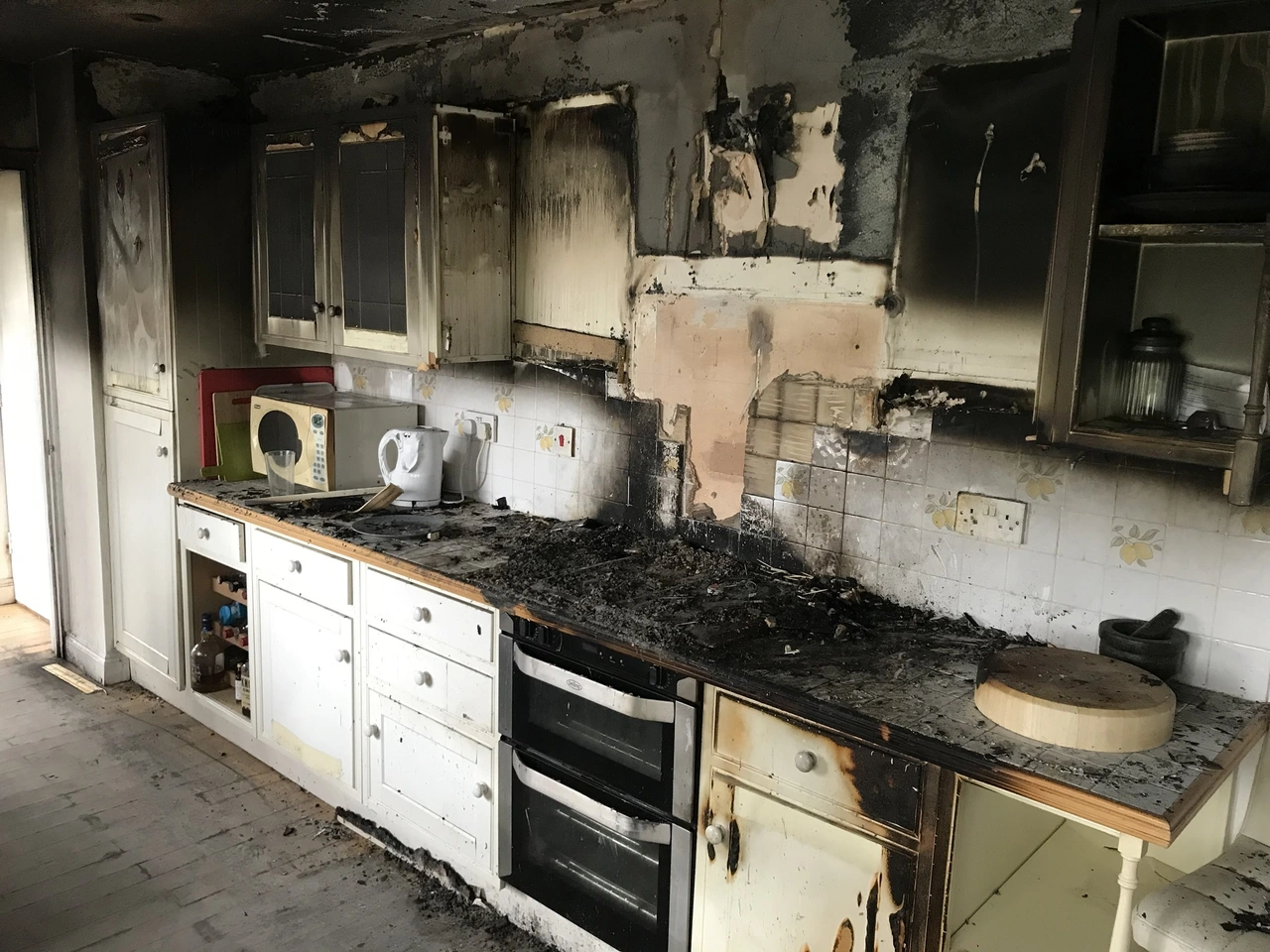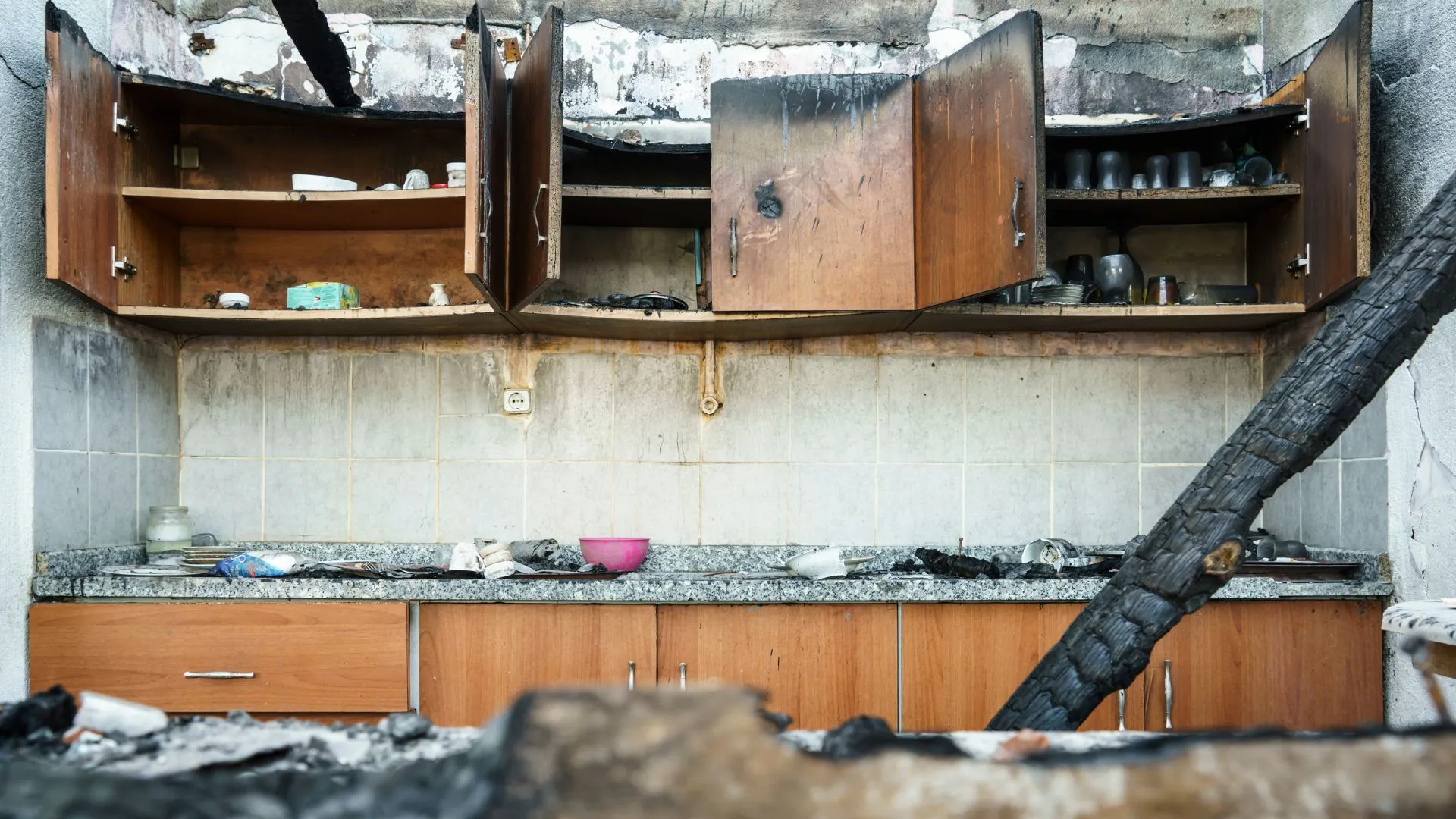Fire Damage Restoration
Fire damage can be devastating, impacting both the structure of a home and the safety of its occupants. The intense heat can cause structural damage to walls, roofs, and support beams, while smoke and soot can permeate every corner, leaving behind toxic residues that are hazardous to health. Even areas not directly touched by flames may suffer damage from smoke, heat, and water used to extinguish the fire. Fire damage also often includes electrical and plumbing issues, making the recovery process complex. Quick and thorough restoration is essential to address these damages, remove hazardous materials, and restore the home to a livable state.
As experienced fire damage experts, we provide comprehensive restoration services to help you recover quickly and safely. We work with care and precision to restore your home to its original condition, ensuring a safe, healthy environment for you and your family.
Some of the ways that fire damage can wreak havoc on your home:
- Structural Damage: Intense heat weakens and destroys key structural elements like walls, roofs, and support beams, compromising the safety of the entire home.
- Smoke Damage: Smoke can infiltrate every corner of the house, leaving behind toxic, corrosive residues that can damage walls, ceilings, furniture, and electronics.
- Water Damage: Water used to extinguish the fire can soak into floors, walls, and belongings, leading to mold growth and further structural deterioration.
- Electrical System Damage: The fire can melt wiring and damage electrical panels, creating fire hazards and requiring extensive rewiring to make the home safe again.
- Ruined Personal Belongings: Furniture, clothing, electronics, and other personal items may be scorched, melted, or irreparably damaged by smoke and heat.

Fire Hazards
Decreasing the risk of fire damage starts with proactive measures and preparedness. Installing smoke detectors throughout the home, regularly testing them, and keeping fire extinguishers easily accessible can help detect and control fires early. It's also important to maintain electrical systems and appliances to prevent short circuits or overheating, which are common fire hazards. Safe cooking practices, properly storing flammable materials, and creating a family emergency plan further reduce fire risks. Regular home inspections and fire safety education ensure you're well-prepared, minimizing the chance of fire damage and protecting both your property and loved ones.
Common Fire Hazards
- Cooking Equipment: Unattended stoves, frying pans, and ovens can easily ignite, especially if flammable materials are nearby. Cooking is one of the leading causes of house fires.
- Electrical Systems: Faulty wiring, overloaded circuits, and damaged cords can create sparks and heat, increasing the risk of electrical fires. Regular inspections and maintenance are essential to mitigate this hazard.
- Heating Devices: Space heaters, fireplaces, and wood stoves can pose fire risks if not used properly or placed too close to combustible materials like furniture, curtains, or paper.
- Flammable Materials: Items such as gasoline, cleaning solvents, paint thinners, and other chemicals should be stored properly in designated areas away from heat sources to prevent accidental ignition.
- Smoking Materials: Cigarettes, cigars, and matches can ignite nearby fabrics or furniture if not disposed of correctly. Designating smoking areas and using appropriate ashtrays can help reduce this risk.

Get It Done
With Us Today
Call us today for all your mold, water and fire damage needs. We're always ready to serve you!
Contact Us
